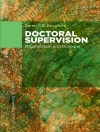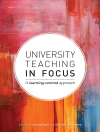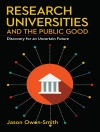A thought-provoking overview of the many challenges facing higher education and how to deal with them by a leading thinker in the field.
Higher education always seems to be in crisis. Governments, foundations, professional associations, and the occasional scornful professor all tend to lament one or another problem plaguing America’s colleges and universities. The more apocalyptic claims state that the United States is a ‘nation at risk, ‘ that our students’ minds have been closed, or that radical faculty have run amok and are brainwashing our youth.
In Get Real, William G. Tierney, a leading scholar of higher education, cuts through this noise, drawing on his experience and expertise to provide a thought-provoking overview of the many challenges confronting higher education and how to deal with them. In forty-nine short, engaging essays, he aims not to stoke the flames of controversy or promote a particular stance but to provoke creative, forward-looking public discussion about what higher education could and should look like in the twenty-first century. Tierney clearly distills and offers his take on critical issues-from diversity and free speech to the rise of for-profit colleges and student debt-but the goal is always to give readers the background and tools to form their own opinions. Written in a conversational tone and laced with personal anecdotes, Get Real is informed by scholarly literature without being weighed down by it and includes suggestions for further reading.
Table of Content
Acknowledgments
Preface
1. A Crisis Is a Terrible Thing to Waste
The Benefits of a Postsecondary Education
The Worth of Universities to Society
The Challenges That Exist
Getting Higher Education’s Groove Back
2. Canaries in the Academic Coal Mine
The Twenty-First Century Idea of a University
Is Higher Education an Aging Industry or a Hot Commodity? Or Both?
Why For-Profit Higher Education Grew
‘It’s None of Your Business.’ ‘Yes, It Is!’
‘Good’ Public Goods
3. The Kids Are Alright—No, They’re Not
John Dewey, Meet Mark Zuckerberg
That Pesky Problem of the First College Year
Let’s Get Real about the (Lack of) Importance of Attending Class
What’s Going on Outside of Class
4. Safe Spaces, Trigger Warnings, and the Contours of Diversity
America’s Love Affair with ‘Merit’
Safe Spaces for ‘Snowflakes’
The Imprint of Microaggressions and Trigger Warnings
Demands versus Conversations
5. Students as Customers
Universities as Amazon (or Whole Foods)
The Lords of the Manor: Faculty
The Parameters of a Good Idea: For-Profit Higher Education
The Flimflam Man Reexamined: For-Profit Higher Education
6. Tear Down That Wall: From High School to College
College for All?
College for Some?
Preparing for College
College Knowledge
7. Jobs, Jobs, Not Jobs
The Good Old Days: Before Anyone Was ‘Academically
Adrift’
Reading and Writing and Arithmetic
Ahead at the Starting Line
Kicking the Learning Can Down the Road
8. The Cost of Free Speech
Understanding Academic Freedom
The Psychic Cost of Free Speech
Fake News and Academic Freedom
The Monetary Cost of Free Speech
On Censoring Others and Oneself
9. Goodbye, Mr. Chips
Why Tenure Came into Existence
Why Tenure Is Going Away
The Color of the Academy
10. Paying for College
Understanding Costs
How Much Is a Degree Really Worth?
How to Avoid (or at Least Minimize) Debt
The Pluses and Minuses of Working in College
11. Noses In, Fingers Out: Rethinking Shared Governance
Shared Governance No More
Presidents at the Trough: Perks and More Perks
Boards Asleep at the Wheel
Monkey See, Monkey Don’t
Leadership for the Twenty-First Century
12. Lessons Learned
Inconvenient Truths
Building a Community of Difference
The Way Forward
Notes
Further Reading
About the Author
Index
About the author
William G. Tierney is University Professor Emeritus and Founding Director of the Pullias Center for Higher Education at the University of Southern California. His many books include Get Real: 49 Challenges Confronting Higher Education; Relational Sociology and Research on Schools, Colleges, and Universities (coedited with Suneal Kolluri); and The Problem of College Readiness (coedited with Julia C. Duncheon), all published by SUNY Press.












